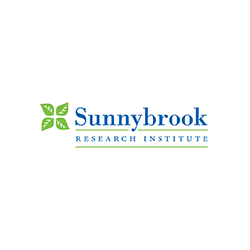 Bridgewater, NJ and Toronto, ON- February 15, 2011 – Sanofi-aventis (EURONEXT: SAN and NYSE: SNY) and Sunnybrook Health Sciences Centre (Toronto, Canada) announced that they have entered into a research agreement and licensing option for vasculotide, an investigational compound to treat chronic wounds. This includes neuropathic diabetic foot ulcers caused by a lack of sensation and neuropathic ulcers that are complicated by peripheral arterial disease, commonly called neuroischemic diabetic foot ulcers.
Bridgewater, NJ and Toronto, ON- February 15, 2011 – Sanofi-aventis (EURONEXT: SAN and NYSE: SNY) and Sunnybrook Health Sciences Centre (Toronto, Canada) announced that they have entered into a research agreement and licensing option for vasculotide, an investigational compound to treat chronic wounds. This includes neuropathic diabetic foot ulcers caused by a lack of sensation and neuropathic ulcers that are complicated by peripheral arterial disease, commonly called neuroischemic diabetic foot ulcers.
“Our new relationship with Sunnybrook Health Sciences Centre fits our strategy of fostering scientific exchange through external collaborations and will help us develop solutions for patients suffering from diabetic foot ulcers,” said Ray Jupp, Vice President of sanofi-aventis’ Therapeutic Strategy Unit, Fibrosis and Wound Repair.
The Fibrosis and Wound Repair unit is one of five Therapeutic Strategy Units created as part of sanofi- aventis’ new R&D model. Three of these units cover major pathophysiology areas where there is significant unmet medical need: immuno-inflammatory disorders, infectious disease and fibrosis and wound repair. The remaining two incorporate work in a challenging area of public health (the physiology of aging) and a high- potential geographic segment (Asia-Pacific region). The focus of the Therapeutic Strategy Units is to identify health solutions through pooling internal and external expertise and bring them to the clinic.
“Sunnybrook is dedicated to making discoveries and delivering them to patients—it’s at the heart of all that we do,” said Dr. Michael Julius, Vice President of Research at Sunnybrook. “Vasculotide, invented by senior scientist Dr. Dan Dumont and Dr. Paul Van Slyke at Sunnybrook Research Institute, is one of our most exciting discoveries. We are grateful that our commercialization agent MaRS Innovation identified sanofi- aventis as the ultimate partner, and we are committed to working with sanofi-aventis to help us develop vasculotide further.”
Vasculotide is a synthetic peptide-based growth factor that targets Tie2, a receptor on specialized cells of the hematopoietic and vascular systems. Close to two decades ago, Dr. Dumont and his colleagues were the first to discover and detail the importance of Tie-2 and its role in the formation of blood vessels. Dumont and Van Slyke are now investigating the use of vasculotide for restoring vascular health and accelerating healing during wound repair. Vasculotide may provide a shortcut to the series of molecular activities involved in blood vessel growth that ultimately lead to wound closure, which may improve healing in patients.
Under the terms of the agreement, sanofi-aventis has an exclusive worldwide option with predetermined upfront milestones and royalty payments with Sunnybrook to develop and commercialize vasculotide. The agreement was signed through Sunnybrook with the assistance of its commercialization agent MaRS Innovation. Financial terms of this agreement were not disclosed.
About Angiogenic Compounds
Angiogenesis is a physiological process involving the growth of new blood vessels from pre-existing vessels and is an essential process to wound healing and combating diseases characterized by either poor vascularization or abnormal vasculature. Several diseases, such as ischemic chronic wounds, are the result of failure or insufficient blood vessel formation and may be treated by angiogenic compounds that foster local expansion and/or stabilization of blood vessels, thus bringing new nutrients to the site and facilitating repair.
About Neuropathic and Neuroischemic Diabetic Foot Ulcers
Foot ulcers are a frequent cause of morbidity and mortality in patients with diabetes mellitus. Neuropathic diabetic foot ulcers are a type of diabetic foot ulcer associated with diabetic peripheral sensorimotor neuropathy. The lack of sensation in the foot in combination with other factors, such as foot deformities and unperceived trauma (e.g., inappropriate footwear) leads to skin breakdown. Neuroischemic diabetic foot ulcers are ulcers occurring in patients with diabetic neuropathy and decreased blood flow to the foot due to peripheral arterial disease, commonly seen in diabetic patients. Neuroischemic ulcers are associated with
significant morbidity and mortality as well as high costs of medical care (related to hospital costs, revascularization and wound-related procedures, and management of infection). If untreated over time or infected beyond repair, neuroischemic foot ulcers may damage one’s foot to such an extent that amputation is unavoidable.
About sanofi-aventis
Sanofi-aventis, a leading global pharmaceutical company, discovers, develops and distributes therapeutic solutions to improve the lives of everyone. Sanofi-aventis is listed in Paris (EURONEXT: SAN) and in New York (NYSE: SNY). For more information, please visit www.sanofi-aventis.com
About Sunnybrook Health Sciences Centre
Sunnybrook Health Sciences Centre is inventing the future of health care for the one million patients the hospital cares for each year through the dedication of its more than 10,000 staff and volunteers. An internationally recognized leader in research and education and a full affiliation with the University of Toronto distinguishes Sunnybrook as one of Canada’s premier academic health sciences centres. Sunnybrook specializes in caring for Canada’s war veterans, high-risk pregnancies, critically ill newborns, adults and the elderly, and treating and preventing cancer, cardiovascular disease, neurological and psychiatric disorders, orthopedic disorders and traumatic injuries. For more information about how Sunnybrook is inventing the future of health care, please visit www.sunnybrook.ca.
About MaRS Innovation
MaRS Innovation provides an integrated commercialization platform that harnesses the economic potential of the exceptional discovery pipeline of 16 leading Ontario academic institutions. MaRS Innovation is a not-for- profit organization with an independent, industry-led Board of Directors, funded through the Government of Canada’s Networks of Centres of Excellence and contributions of its member institutions. MaRS Innovation advances commercialization through industry partnerships, licensing and company creation. For more information about MaRS Innovation, please visit tiap.ca.

